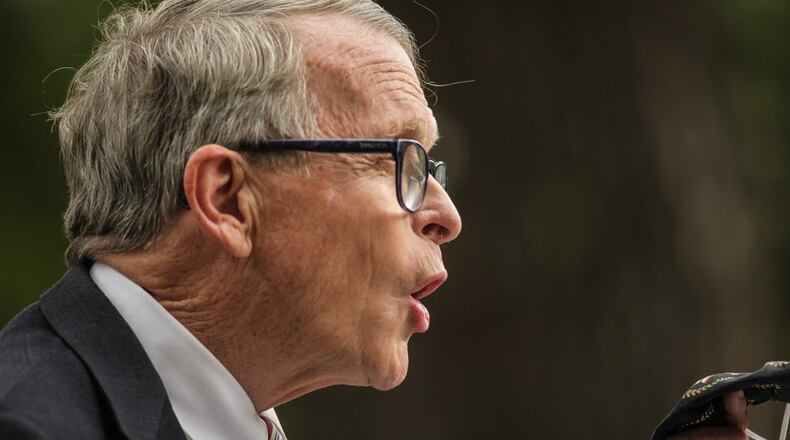This would be on top of the $1.54 billion rebate in April and the $1.34 billion rebate in October.
Gov. Mike DeWine said on Wednesday that the checks, which would start flowing in December, would range from hundreds of dollars to millions of dollars. The city of Columbus would be in line to receive $64 million, the largest check in the state.
The rebates are possible because of a decline in claims, prudent fiscal management and strong portfolio returns, the governor said.
Chris Kershner, president and CEO of the Dayton Area Chamber of Commerce, said the help to businesses couldn’t come quick enough.
“Businesses here are struggling and this help from the state is much appreciated. Employers pay into this fund and we’re glad they’ll be getting it back,” Kershner said.
The Ohio BWC is a state-run insurance program that collects employer premiums and pays medical expenses and wages for injured workers. It processes about 85,000 claims each year, which involves nearly $1 billion in expenses. The system covers about 250,000 employers.
The system has issued annual rebates of more than $1 billion every year since 2013. The $5 billion rebate would be the largest in state history.
Despite the regular rebates, BWC Administrator Stephanie McCloud said the system isn’t over charging employers on premiums.
“We have been very fiscally prudent with our investments. Those have been outstanding. We have decreased our rates. We have had either a decrease or no change in rates every year for private employers since 2007. For public employers, it’s been every year since 2008,” McCloud said.
Rates have declined by double digits in 2018, 2019 and 2020 for private employers, she said.
DeWine said the $5 billion rebate is a chance to put money back in the hands of employers so they can keep their businesses going and workers on the job.
Lt. Gov. Jon Husted said the funds would “inject a lifeline to people during a difficult time.”
Kershner said area businesses will be able to put the money to good use to help right away.
“We’ve been impressed with how focused Gov. DeWine and Lt. Husted have been on helping businesses,” Kershner said.
About the Author

